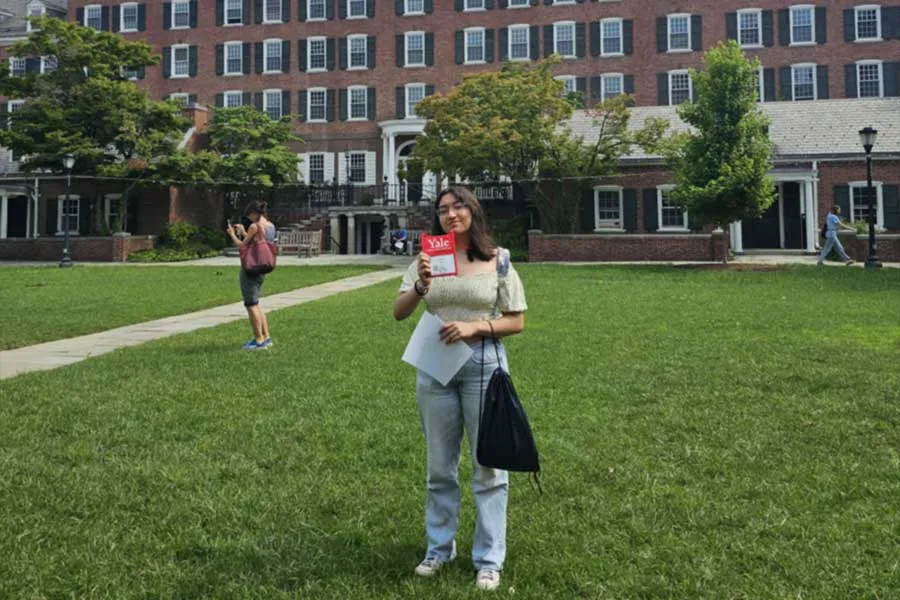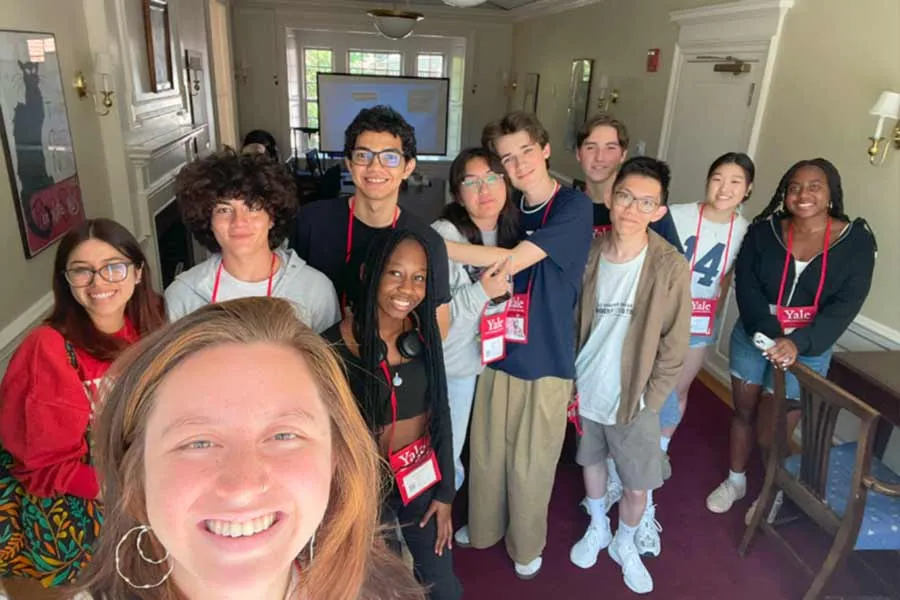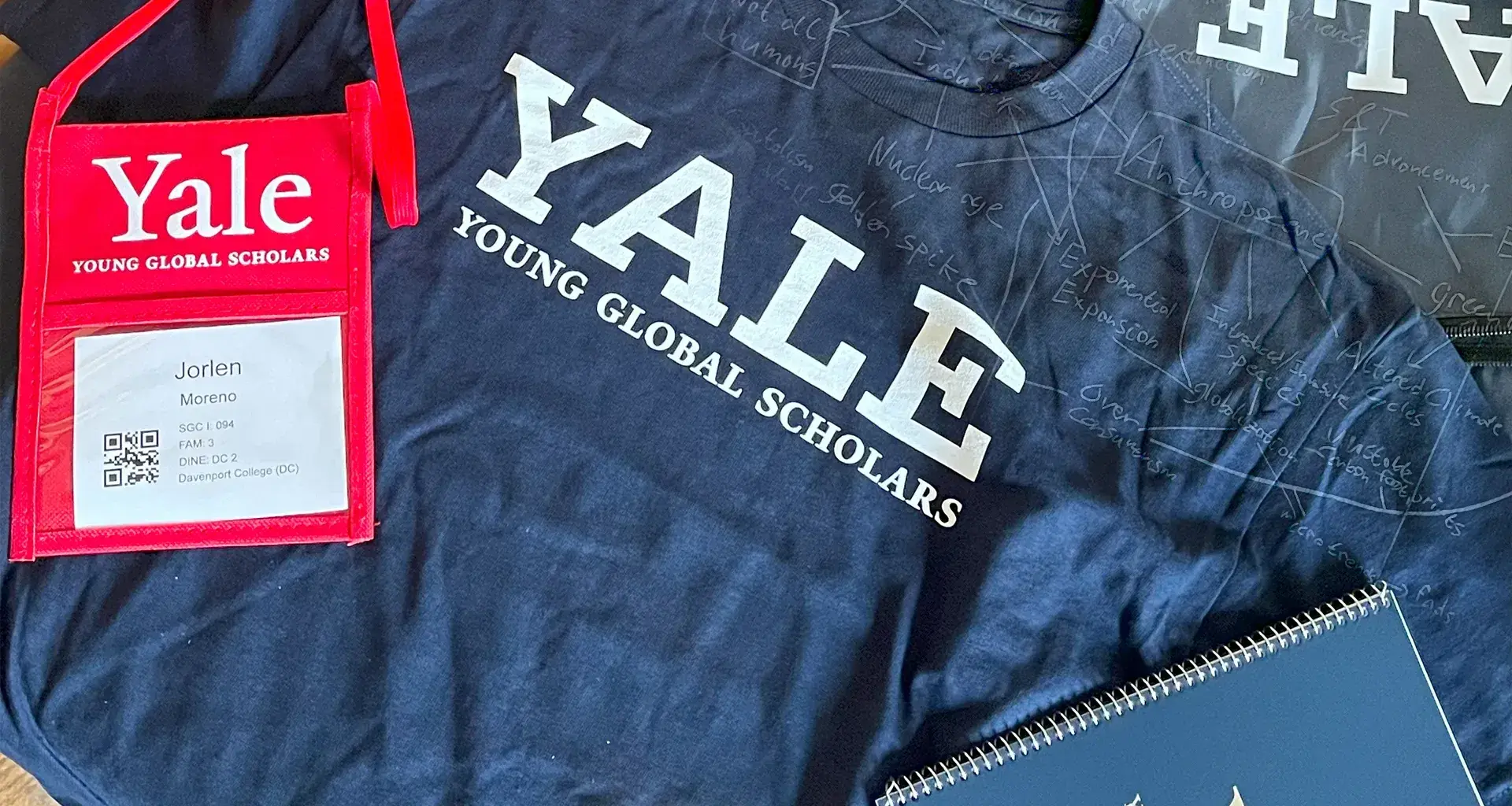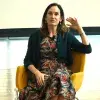During the summer of 2024, Jorlen Moreno Soria was selected for the Yale Young Global Scholars educational program at Yale University so that she could acquire interdisciplinary skills alongside other high school students.
What started out as a two-week international experience for the PrepaTec Mexico City campus student ended up awakening a desire to want to change the society currently surrounding her.
Together with other students from different parts of the world, Jorlen started a social project to promote STEM education for young people (mainly girls and women) in vulnerable situations.
The student shares how she aims to bring the project launched at Yale to different parts of Mexico and Latin America.

From exact sciences to social sciences at Yale
Despite being an avid fan of robotics and engineering, Jorlen thought it was a good time to step out of her comfort zone and decided that her academic track for the Yale program would be focused on Humanities and Social Sciences.
“In my case, the track I decided on was ‘Solving Global Challenges,’ in which you’re able to choose some of your classes. I chose two on climate change and another on queer representation,” she explains.
It was during one of these classes that Jorlen and her team were asked to create an NGO focused on any one of the UN’s Sustainable Development Goals.
One of the first challenges she faced was that her three classmates came from different cultural backgrounds.
“Since we came from different backgrounds, each of us presented a different situation. The team included someone from India, someone from the United States, one from Nicaragua, and me from Mexico.”
“As I’m in robotics and I know how difficult it is to get into this, we decided to focus on this issue.”
A project dedicated to girls and access to STEM education
Something that Jorlen was clear about from the beginning was that she wanted to focus on something that she herself had had difficulty accessing: STEM subjects.
“I decided that I was going to do it on Education and Inequality.
“We held a brainstorming session at the beginning, and I said, ‘Look, I’m studying STEM subjects, I’m in robotics, and I know how difficult it is to get into this.’ So that’s how we decided to focus on this issue,” adds the student.
When developing the project, Jorlen was worried that their project wouldn’t work out, since they had to plan it well to present it to their teachers and it could have been rejected.
“It was a fictional Shark Tank-type situation. They had a certain budget that they had to allocate to all the teams, but the money that was going to be assigned to us depended on our proposal,” she says.
When the eve of the presentation arrived, her team was barely 50 percent finished. Despite being tired and worried, they decided to stay up all night to get their proposal ready.
The next day, the team had 15 minutes to present their project to the judges.

“When they were saying which team had won the largest amount of the budget, they announced my team and the Access to STEM Education project as the best, due to the fact that it was focused on vulnerable communities and gender inequality,” says the PrepaTec student.
Access to STEM education for vulnerable communities
Although Jorlen has been involved in STEM education, she realized that not all young people have had that opportunity.
“There are communities where the socioeconomic situation isn’t the best or some schools simply don’t have support for STEM education,” she says.
One of the initiatives proposed by Jorlen’s team was to develop science fairs for students.
“It isn’t easy for science to become part of people’s surroundings. Something we proposed in the project was that we first wanted to reach schools in vulnerable communities and hold science fairs.
“And there would be different activities at these fairs and a special fair for girls. That’s when we’re going to have different women in science,” she adds.
STEM education in Mexico and Latin America
The Mexico City student shares that her project, initiated as a requirement for the Yale program, aims to impact Mexican society and in the long-term future in Latin America.
“My main goal is to reach at least 5 schools here in the city.”
“My main goal is to reach at least 5 schools here in the city. I have friends with the same dreams and the same visions in Sonora, Monterrey, and Puebla.
“So, the plan is that we begin to implement it together throughout Mexico, and from there we’ll move on to other countries in Latin America.”
Finally, Jorlen shares that even though there may be obstacles along the way, the important thing is to believe in yourself, even if the goal seems impossible.
“Don’t limit yourself to what people think you can do. It’s hard not to be influenced by what other people tell you, such as simply saying that you can’t do something because you’re a girl.
“The advice that I think is the most useful and the most difficult is if you believe in what you can do as a person and the impact you can have, you will achieve a lot of things,” she says.
DON’T LEAVE WITHOUT READING:





